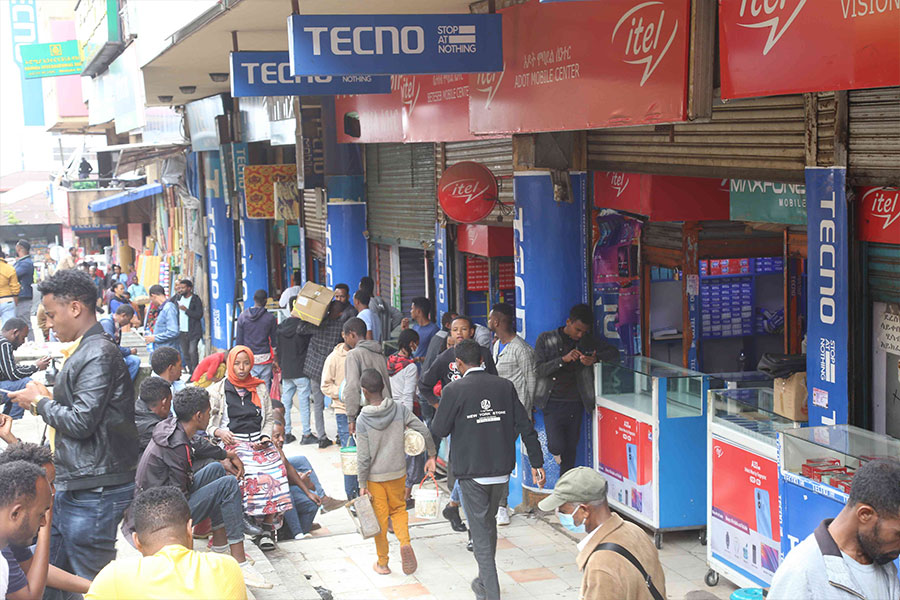
Fortune News | Nov 12,2022
Oct 10 , 2020
By Carolyn Kissane
Recently, I was forced to fire my maid. It was not a decision I took lightly considering the complicated socioeconomic factors that underlie our relationship but one I had to make under the circumstances.
She was hired to do most house chores, including cleaning the house, cooking and doing laundry - things my husband and I are unable to do because of our engagements. Unfortunately, this arrangement oftentimes did not work.
She usually comes only in the morning, when there is usually no water in the apartment, thus the laundry often goes undone. She sweeps and mops the floor every other day, but sometimes she forgets to take the trash out or put it in the garbage. She leaves stuff open everywhere, and she misplaces the kitchen utensils.
While she does wash the dishes, she does not do it thoroughly. She abuses the cooking oil we have in the house. Five litres of it will not last for a month, although we are only a family of three. She uses half a kilogram of groceries just to cook a single meal. On multiple occasions, we talked about the need to be economical. Still, nothing changes.
She comes early, stays for a maximum of two hours and leaves. She makes excuses and does not come sometimes. Other times she does not come without saying a word. Sometimes, she leaves early before the work is finished, because she claims that she will be late for her other job.
"You need to be bossy and strict, otherwise they will take advantage of you," is what peers typically say whenever the topic of housemaids pops up.
What they really probably mean is that employers should put their maids in their places. This is probably not a good idea. Many people with such experiences fail to comprehend the adverse socioeconomic circumstances that many of those in the maid service live under.
They are just like many of us. They work for a salary that may seem too high for some of us that are paying but is at the end of the day an amount hard to get by with in a city like Addis Abeba, where the cost of living rises month after month.
But because of the long-existing social stratification of labour, we tend to see domestic work as menial. We have also come to assume that they are lazy and opportunistic and ready to take advantage of us the second we turn our backs.
We tend to believe that we are too nice to them and that every disagreement we have with them is a sign of disrespect to us. Rarely do we take lightly to having our authority undermined by them. It is not an accident then that we have come to believe that the best domestic workers are those who happen to fear employers and that all of those that show some sense of agency are overstepping their bounds.
Is it true that some domestic workers are lazy?
No doubt about it. There are even those who steal and put children in danger through negligence. But let us consider the relationship the same way we look at employees and their employers at a major corporation.
There are few employees that do their jobs wholeheartedly, with most simply accomplishing the minimum needed to get by. This is in large part because of the low pay of most employment opportunities in Ethiopia and how they are unlikely to offer meaningful social mobility. Part of it also has to do with the poor work culture we have in the country.
But do many companies show more compassion to their employees beyond the labour they are willing to give them?
I have a friend who hates corporations. They are greedy and take advantage of their employees, according to him. The other day, we were talking about how some corporations lost money after the Novel Coronavirus (COVID-19) pandemic began, which led to them laying off their employees or not paying their salaries on time.
"These corporations made fortunes over the years with the sweat and blood of their employees,” he said. “Why can't they pay their employees from the money they made them for years?”
This is how the relationship between employee and employer is formed. Each is looking to reap the most out of the arrangement. The same goes for domestic workers and their employers, but this dynamic is only exasperated by the socioeconomic, and in some cases political, factors that inform their decisions. It is incumbent on all of us - but perhaps more so on employers - to take it easy on the other.
PUBLISHED ON
Oct 10,2020 [ VOL
21 , NO
1067]


Fortune News | Nov 12,2022

Fortune News | May 11,2024

My Opinion | Aug 03,2024

Viewpoints | Dec 31,2022

Radar | Nov 24,2024

Radar | Aug 27,2022

Fortune News | Aug 21,2023

Radar | Jun 19,2021

Agenda | Aug 14,2022

Advertorials | May 21,2024

Photo Gallery | 155235 Views | May 06,2019

Photo Gallery | 145507 Views | Apr 26,2019

My Opinion | 135166 Views | Aug 14,2021

Photo Gallery | 133990 Views | Oct 06,2021

Dec 22 , 2024 . By TIZITA SHEWAFERAW
Charged with transforming colossal state-owned enterprises into modern and competitiv...

Aug 18 , 2024 . By AKSAH ITALO
Although predictable Yonas Zerihun's job in the ride-hailing service is not immune to...

Jul 28 , 2024 . By TIZITA SHEWAFERAW
Unhabitual, perhaps too many, Samuel Gebreyohannes, 38, used to occasionally enjoy a couple of beers at breakfast. However, he recently swit...

Jul 13 , 2024 . By AKSAH ITALO
Investors who rely on tractors, trucks, and field vehicles for commuting, transporting commodities, and f...

Sep 13 , 2025
At its launch in Nairobi two years ago, the Africa Climate Summit was billed as the f...

Sep 6 , 2025
The dawn of a new year is more than a simple turning of the calendar. It is a moment...

Aug 30 , 2025
For Germans, Otto von Bismarck is first remembered as the architect of a unified nati...

Aug 23 , 2025
Banks have a new obsession. After decades chasing deposits and, more recently, digita...

Sep 15 , 2025 . By AMANUEL BEKELE
The Grand Ethiopian Renaissance Dam (GERD), Africa's largest hydroelectric power proj...

Sep 13 , 2025
The initial budget in 2011 was 80 billion Br, but this figure swelled to a revised cost of 240 billion Br by 2024, a challenge that was exac...

Sep 13 , 2025 . By BEZAWIT HULUAGER
Banks are facing growing pressure to make sustainability central to their operations as regulators and in...

Sep 15 , 2025 . By YITBAREK GETACHEW
The Addis Abeba City Cabinet has enacted a landmark reform to its long-contentious setback regulations, a...